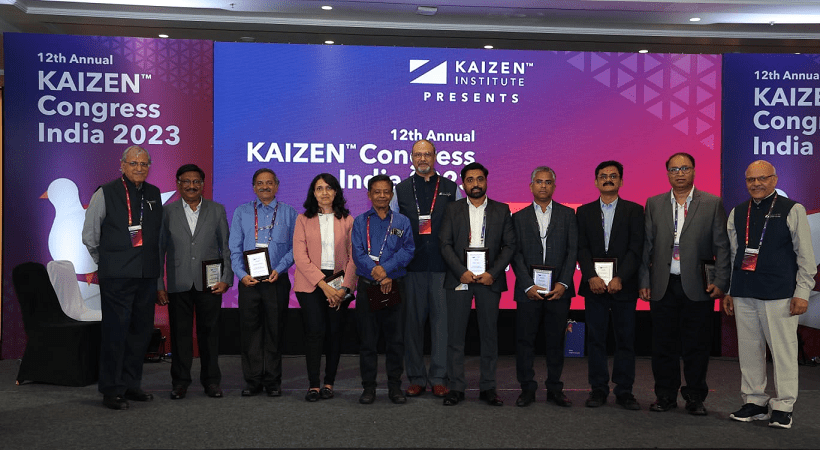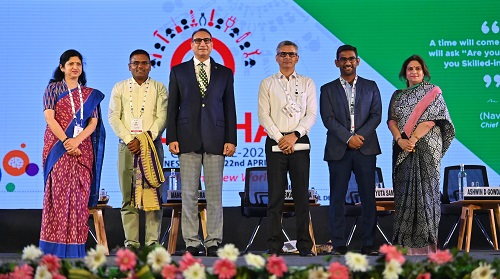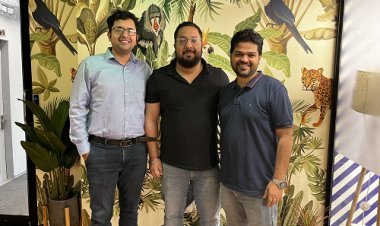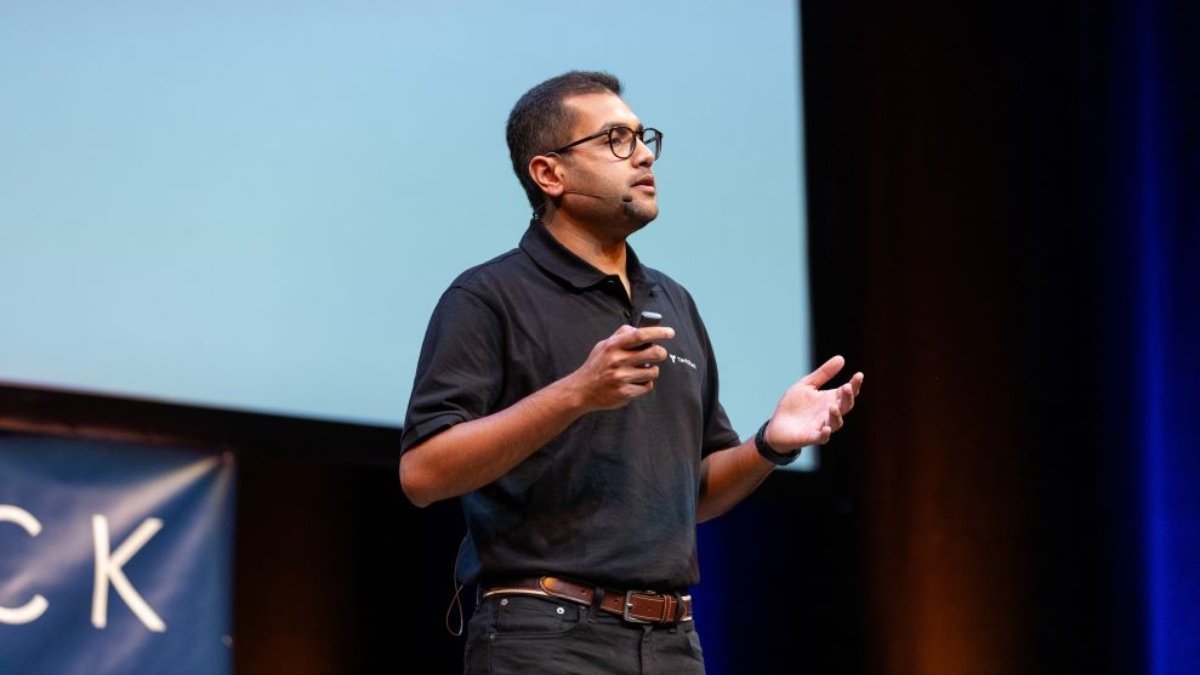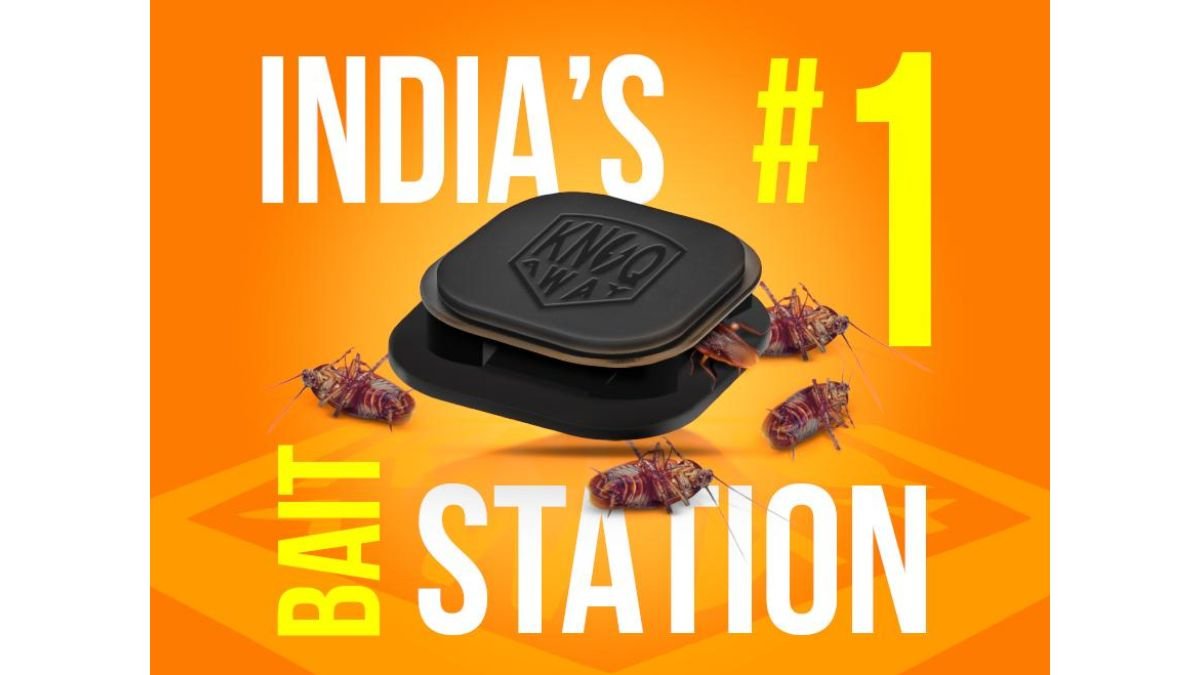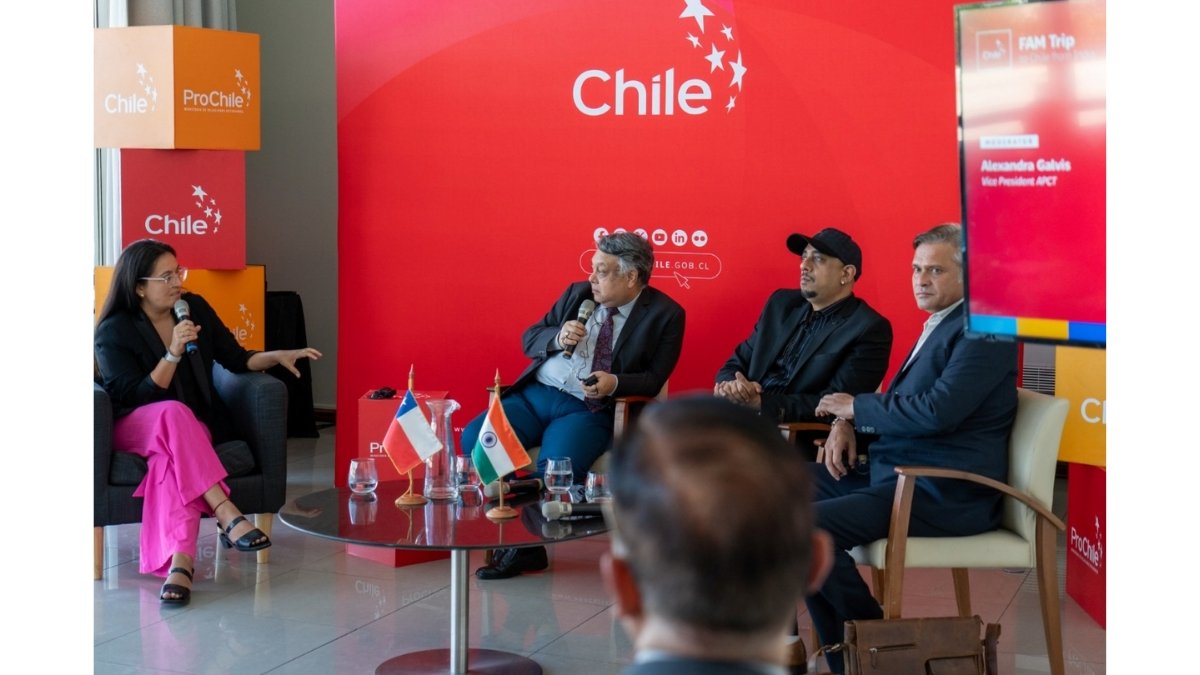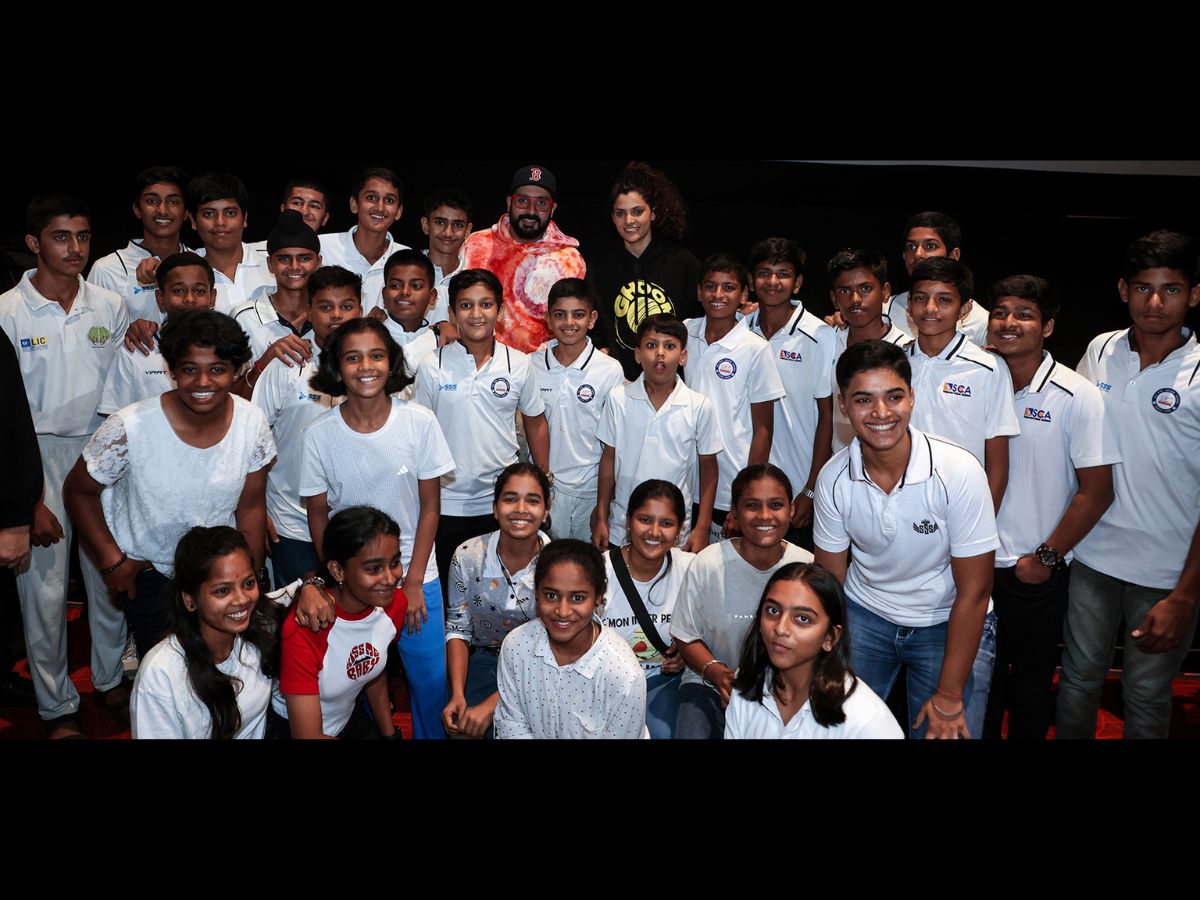ACRE Unique Initiative for Cotton farmers of India
(Left to right) Rijit Sengupta, CEO, CRB, Heske Verburg, MD, Solidaridad, Global, Franco Constantini, MD, regenagri Certification, Dr. Shatadru Chattopadhayay, MD, Solidaridad Asia, Dr. Nilay Ranjan, Head, CSR, Vodafone Idea Nagpur (Maharashtra) [India], December 5: Solidaridad Asia, Centre for Responsible Business (CRB) and regenagri today announced the launch of the Alliance of Cotton & Textile Stakeholders […]


(Left to right) Rijit Sengupta, CEO, CRB, Heske Verburg, MD, Solidaridad, Global, Franco Constantini, MD, regenagri Certification, Dr. Shatadru Chattopadhayay, MD, Solidaridad Asia, Dr. Nilay Ranjan, Head, CSR, Vodafone Idea
Nagpur (Maharashtra) [India], December 5: Solidaridad Asia, Centre for Responsible Business (CRB) and regenagri today announced the launch of the Alliance of Cotton & Textile Stakeholders on Regenerative Agriculture (ACRE) to promote regenerative cotton farming practice in India.
The Alliance (ACRE) estimates the adoption of such a practice will help fix at least 1 million tonnes of greenhouse gas emissions (GHG) by 2030, while improving the livelihood of more than 500,000 smallholder cotton farmers and their community through various partnerships in India.
The ACRE Alliance was launched at the event ‘Reclaim to Regenerate: Towards Regenerative Cotton Sector in India’ in Nagpur, Maharashtra. Through this Alliance, Solidaridad and CRB believe the required shift in agricultural practices will be possible because of a new, more systemic form of collaboration between stakeholders across the value chain, which includes farmer groups, ginners, traders, buyers, brands, as well as agricultural and textile authorities.
The programme was attended by frontrunner responsible buyers, brands and textile value chain actors who are committed to sustainability and value regenagri cotton principles. The partners also provided a call to action in the form of the Nagpur Declaration, to be signed by responsible companies committing their support to regenagri-certified cotton.
Solidaridad, CRB and regenagri believe that regenagri-certified cotton is sustainable, ensures fair value to farmers and complies with national and international policy priorities. By working with the stakeholder groups, they are confident of achieving, in the next one year, 50,000 tonnes of regenagri-certified cotton from the fields of 10,000 farmers, and being used by 10 or more fashion brands.
It is also expected to bring about a positive shift in favour of sustainable sourcing of cotton by buyers, brands and retailers, and help them in their journey towards net-zero emission.
India is one of the largest exporters of cotton yarn, and cotton accounts for 16% of the industrial capital and 20% of the industrial labour. However, cotton production is also linked to issues like farmer distress, ecological risk, and social and environmental injustice.
For instance, cotton monoculture in Maharashtra and Gujarat faces increasing risk of rainfall variability. The production of the crop often involves indiscriminate use of inorganic pesticides and fertilisers which impacts the quality of soil, water, as well as the local biodiversity. Therefore, many brands are now interested in promoting responsible agriculture practices. Solidaridad, CRB and regenagri aim to promote and popularise regenerative agriculture which promises better livelihood along with ecological sustainability.
In 2020, Solidaridad piloted one of India’s largest regenagri certification programmes in Vidarbha, Maharashtra, supporting 8,000 small farmers in adopting these practices. Presently, Solidaridad is working with over 100,000 farmers in the region – this alone would help in reduction of about 100,000 tonnes of GHG. Recognising the efforts of the progressive farmers, HeskeVerburg, Managing Director, Solidaridad Europe, felicitated some of them at the event.
Regenerative agriculture is now being considered as a sustainable alternative to conventional agricultural system, because it balances the interests of smallholders with the need to revive the natural systems for sustainable production. Regenerative agriculture can contribute actively in reversing climate change by rebuilding soil organic matter, surface and subsurface carbon pools, and restoring degraded soil biodiversity–resulting in both carbon drawdown and improvement in the water cycle. In simple terms, it is reversing the direction of global agriculture from degenerative to regenerative; creating a system that generates agricultural products, sequesters carbon, and enhances biodiversity at the farm scale.
The aim of the Alliance of Cotton & Textile Stakeholders on Regenerative Agriculture (ACRE), which will be jointly managed by Solidaridad, CRB and regenagri, is to promote regenerative agricultural practices by:
- Supporting the scaling up of regenerative agriculture in cotton with the vision of making India the world’s biggest producer of certified regenerative cotton
- Enabling collaboration among cotton and textile value chain actors on regenerative agriculture across various cotton landscapes in India
- Advancing tools/mechanism(s) that balance smallholder benefits with conservation of nature, and augment soil heath in different agro-climatic regions and landscapes growing cotton in India
- Creating awareness amongst national and international consumers/users to demand regenerative cotton
- Documenting and communicating success stories on regenerative agriculture in cotton
- Engaging on policy issues related to regenerative agriculture and natural farming at state and national level
- Building capacity and expertise among cotton and textile sector buyers and brands for wider adoption of regenerative practices in cotton and textile industries
- Linking cotton farmers practising regenerative agriculture to initiatives focused on carbon/climate finance/ biodiversity finance
Solidaridad, CRB and regenagri are committed to impactful and inclusive programmes on the ground and are therefore joining hands to take regenerative agriculture to larger landscapes and across crops, starting with cotton.
The ACRE Alliance aims to support the implementation actions aligned with the National Mission on Natural Farming, a Government of India initiative. Solidaridad and CRB will engage with government authorities to synergise the Alliance’s plans with the BharatiyaPrakritik Krishi Paddhati Programme under the national mission, to promote agrarian livelihoods as well as address climate change and biodiversity loss.
At the launch of this Alliance, Dr Shatadru Chattopadhyay, Managing Director, Solidaridad Asia, said: “Arable land greater than the size of England is abandoned every year due to land degradation; in other words, more rainforests or savannahs need to be ploughed to replace this loss. Regenerative agriculture is the next step forward, from sustainable agriculture. For Solidaridad, regenerative agriculture is the sustainable agriculture for this decade.”
Franco Costantini, CEO, regenagri said: “regenagri has been doing great work in India where, as of October 2022, more than 40,000 farms are already certified under this programme. The collaboration with Solidaridad and Centre for Responsible Business is a great opportunity to scale up together and bring the positive impacts that stakeholders are asking for.”
Rijit Sengupta, CEO, Centre for Responsible Business (CRB), said: “This partnership will create opportunities for cotton and textile buyers and brands to collaborate with producers/farmers to regenerate natural systems and mitigate climate change. A powerful element of this initiative is how it demonstrates that farmers can be active partners in meeting the climate targets of our country.”
If you have any objection to this press release content, kindly contact pr.error.rectification@gmail.com to notify us. We will respond and rectify the situation in the next 24 hours.







